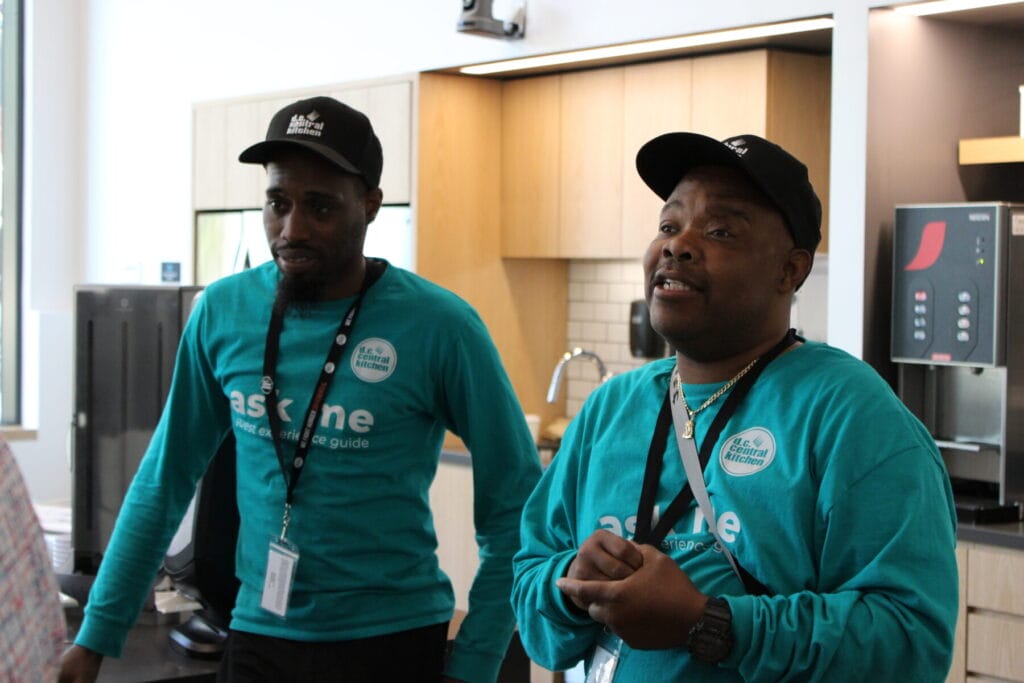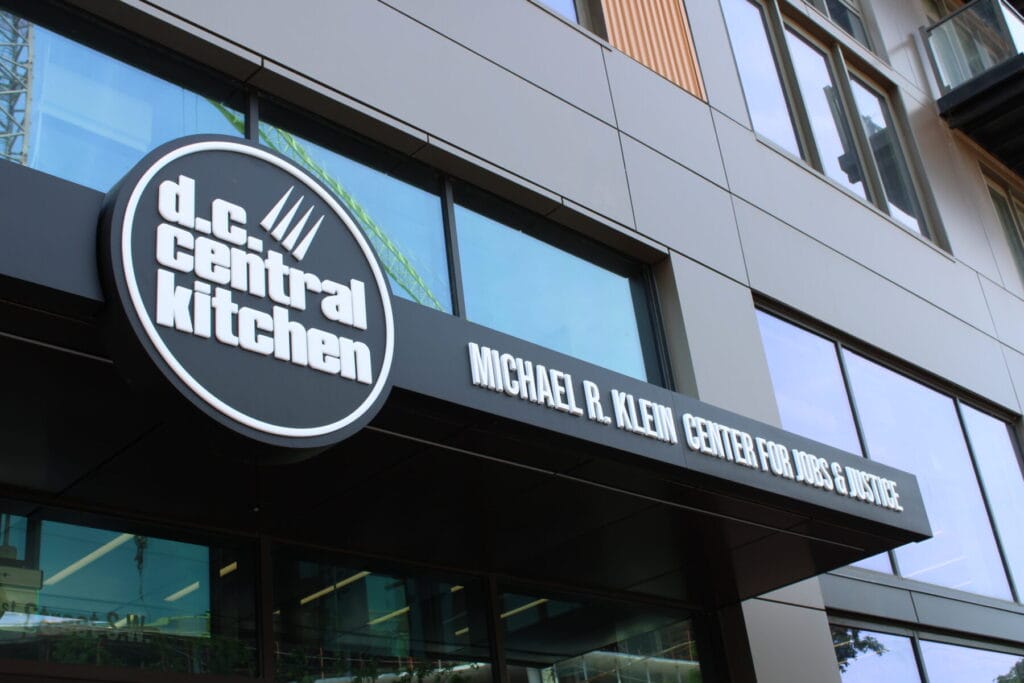By Brock LaChapelle, ASU Sustainable Food Systems graduate student

In May 2023, DC Central Kitchen welcomed our cohort from the ASU Sustainable Food Systems graduate program to their facility for a tour of their operation. Located in the LEED Certified RiverPoint development, this non-profit organization’s mission is to “use food as a tool to strengthen bodies, empower minds, and build communities.” They do this by providing culinary training, job placement, community/school meals, and an outreach program that supplies the demand for healthy produce in DC food deserts.
Recognizing that hunger results from poverty, DCCK’s policies enable the organization to breathe life into underserved sectors within the food system. Our tour guides, proud Culinary Job Training graduates, were eager to explain that the DCCK building was built intentionally to provide support and accountability for the program members. DCCK’s headquarters encompass its strategy by displaying interactive screens listing donors, designating wellness areas, and a general layout that promotes interaction between all members within the organization.
Through their Culinary Job Training program, DCCK is breaking the cycle of poverty for at-risk adults and young people who are not working or in school. This respected program offers culinary arts education, career readiness training, a life-skills coach, and real-world internships to help adults who have faced employment challenges. Every student is awarded a full scholarship which provides the resources for transportation, childcare, and other essentials needed to help the student become a successful member of Washington DC’s culinary community during and two years after completing the program.
Dr. Beverley Wheeler, Chief Knowledge Officer for DCCK, explained the strategy to empower their organization’s members. DCCK is a space for people to acquire marketable skills to help impact their community and obtain dignified jobs. Dr. Wheeler shared that program graduates have an 86% placement rate. These skilled graduates are gaining employment through DCCK’s revenue-generating cafes, catering programs, and reputable businesses in the DC area.

The strategy to boost communities through healthy food is displayed again through DCCK’s Healthy Corners venture. Dr. Wheeler explained the initiative had proven high levels of demand for healthy food in communities that lack access. Healthy Corners supplies small shops within food deserts with fresh produce and healthy snacks at wholesale prices and smaller quantities than a typical distributor. DCCK provides marketing and technical support for shops that join the Healthy Corners venture. This project offers consumers produce at below-market prices, furthering DCCK’s goal to strengthen bodies, empower minds, and build communities.
Throughout our tour, the amount of pride the members took in the building and DCCK’s programs was apparent. Culinary Job Training and Healthy Corners are just a portion of the operation. The tour gave our cohort the ability to witness the DCCK system in action. It was a unique experience to view an organization that supplies itself with skilled staff to execute revenue-generating programs that feed healthy meals to school students and community members. By imparting knowledge and providing essential resources to underserved members of the community, DCCK is effectively addressing the issue of poverty while creating a more just food system.
This blog is part of a series from the May 2023 Washington D.C. Immersive component of the Swette Center graduate programs. Students met with federal food and agriculture focused officials at USDA, the White House, and Congress alongside many other important influencers of policy in industry and non-profits.